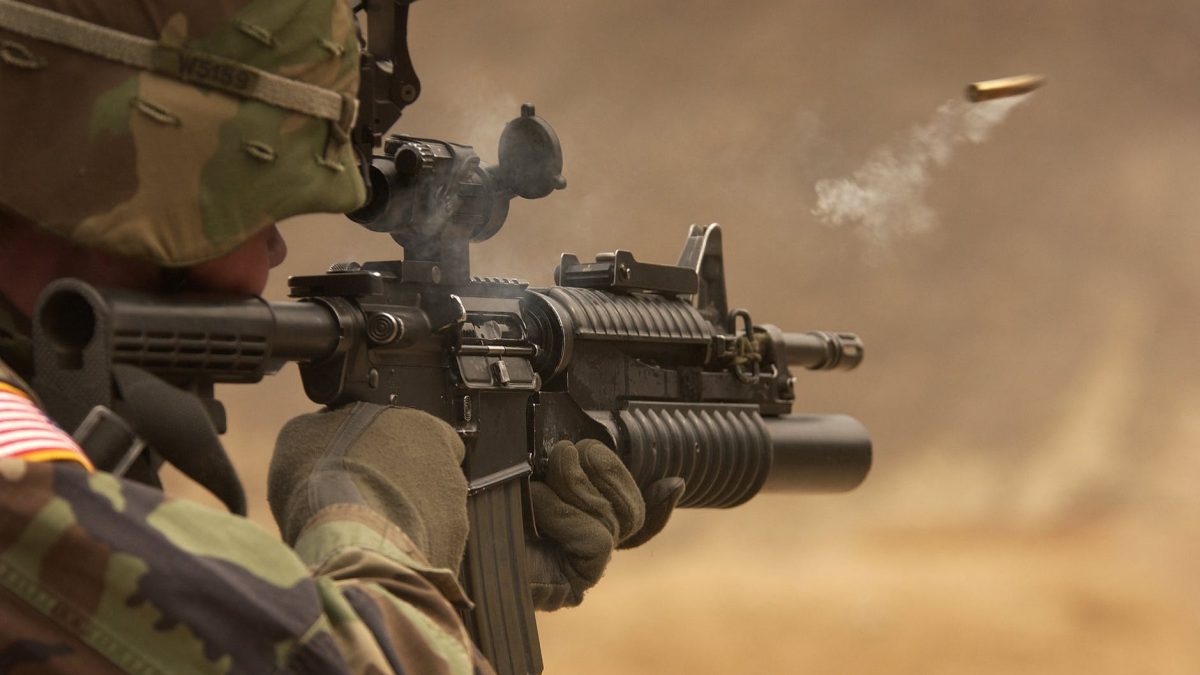Along Came Love by Zubair Hassan Baba is what we might refer to as brilliant historical fiction. It tells the Nigerian story of post-colonial travail and the bloody civil war. You may smile, sigh and probably tear up but surely you will fall deeply in love with Zubair’s storytelling style. We loved how the twists, the turns, and the lessons are skilfully knitted into a powerful plot, you will too!
– Editorial Team
Lokoja, 1967: Prologue
“Help me!”
I heard the voice that sounded faintly to the ears. It lacked vigor. It lacked energy. It was just too feeble. But my steep sensitivity that had always exude sharp inclination for the faintest of sounds picked it up as usual. I stopped to hear more of it. Maybe I was hallucinating.
“Help me!”
This time, the voice had a little bit of bass. I pumped the breaks on my track. The only road that cuts through Lokoja’s heart had become a dumpsite for dead bodies. They litter everywhere. Carcass of the Biafrans. The Nigerians. And those caught in between. Lokoja was the battlefield these two knuckleheads could test their newly acquired independence. It was an entry point to the South-South and an exit point from the North.
I followed the voice. Slowly and attentively. I needed to know what was drawing me in. A missile had hit a red cross building that had housed refugees. I thought these are “No-Go Areas” for warring parties? These warring armies are savages. Wrecking anything they perceive as a threat.
Its remains were a half dilapidated, half erected part of the enormous makeshift made to house the refugees. I entered the area, determined to find that voice. I saw bodies littering every space. I stepped on burnt bodies like an Empress on a red carpet. They smelt like crispy pork dipped in a lot of sauce. My stomach rumbled. I hadn’t eaten in two days but I wasn’t going to start digging on my fellow humans. I was no cannibal. God forbid!
It was an awful sight.
“Help me!”
The voice came again. But this time, it was closer. I marched on three more dead bodies and voila, I saw my mystery caller.
She was soaked in her blood. Her head bore a deep cut, I could see the white caput shielding her brain. She was missing a leg and a heavy pillar laid just right across her chest. Just one person facing all these misfortune. I winced in anguish. I was determined to push off the pillar but how could I? I only weigh 60 pounds.
“Let it be!” she said. It sounded more like a command.
“What happened here?”
“Long story”.
“I’m so sorry”
“Why? You didn’t do this” she said.
It was true I didn’t do this. Our government did. Our leaders did. Our military leaders had no clue what real power entails except exerting terror. Our military leaders had gotten highly intoxicated by the smell of their colorful and well-starched uniform, and one day felt they were too pretty to sit in the barracks. It was Ojukwu’s fault as it was Gowon’s fault. Two clowns using the whole country as a field to battle the “Big Brother” crown.
“Help me!” she said again.
“But how?”
“I have a son. He is special. Help me to help him.”
“How do you mean?” I asked.
“He is in Abor, Enugu. Christ High School.”
“You’re kidding, right?”
“He is special. Here is a picture” she said. Her blood-soiled clenched fist opened up.
“Tell him Nne sent you. You will be rewarded. Take him to his father. Find him please…”
And she went silent. With her eyes still wide open and her mouth taking the letter “O” shape, she shuffled off the mortal coil leaving me with a herculean task and a thousand and one questions.
“What was his name?”
Okene, 1962.
Turn right. Swerve stylishly. Give me your best pose. Throw your buttocks backward like you don’t care. Wriggle like you’ve caught a cold. Make four with your leg. Say cheese. Click Click!
That was me before the war started. I was a photographer and I was amazingly good at it. At least, that’s what people say. I had learned from the best – Sir Hughes himself. Although it had taken a whole lot of persuasion and commitment before my master could deem it fit to teach a black man the art of photography.
I was patient and kind. Sir Hughes himself fell in love with those rare qualities.
“Black monkey, bring me those lenses”
He said one day at an event we were invited to shoot. His voice was vibrant and thunderous. Everyone turned their attention to the bearer of the voice and the black monkey in question. With an amazing smile, I gave my master the lenses throwing a perfectly slight bow in between.
“Here you go, master,” I said.
The crowd of white folks applauded for no reason. Reasons I couldn’t comprehend to date. Was my meekness being celebrated or was the applaud meant for my bully of a master? Were they applauding my composure or was Master’s firm grip on his apprentice being relished?
I took every hurt in silence for the next four years. I was determined to be a photographer. Not just any photographer – The Black Nubia Photographer. I was willing to turn a blind eye. I was ready to use my face to mop my Master’s gummy saliva from the air if need be. I fetched his water. I cooked his food. I was his companion and apprentice.
When he decided to retire and spend the remainder of his bully years in his home country, Ireland; he couldn’t help but shed a tear. Sir Hughes thanked me for my services and encouraged my humility. He called me the epitome of patience. I smiled. If only he knew I had a goal. If only he knew my patience didn’t come cheap. With tears, he gifted me his studio and working equipment. In return, I shed some crocodile tears and told him sweet nonsense that amounts to naught.
“Bye Bully!” I screamed as his plane taxied off. He certainly won’t be missed.
***
I’d managed to carve a name for myself in Okene. I was the Black Nubia Photographer. I added colors of racism to my affairs. The blacks get to pay as little as they could afford. But the whites? I was ready to milk them dry of what their fancy little purses held. I was, after all, the only photographer in the locale. Except you want to take the long-distance to Lokoja just for few flimsy shots, I’m your damn bet.
For four years, I took three apprentices a year. Preferably blacks. Unlike my Master’s, I was ready to give back to the society that had given me so much. I gradually became an important part of Okene’s hierarchy. I made friends easily with everyone. I was, after all, the candy man that had brought forth another delicious plate of opportunity.
Aroke was one of those friends. The sycophant type that knows how to butter me up so long I bleed of pounds and shillings. He was swift with the tongue and pitiful with the eyes. He could garner sympathy from even the world’s craziest man, Hitler.
“Have you ever thought of expanding?” Aroke said one afternoon.
“How do you mean?”
“Haven’t you ever thought of owning more?”
“Like having branches here and there?” I asked.
“Exactly my friend”.
“That will be nerve-racking”.
“But comes with more money. Lokoja is a good place. Imagine the name; The Black Nubia International. Sounds amazing right?” he asked and I saw myself dining with the Queen herself in no time.
Aroke was a sweet-taker. It didn’t take long before we’d set everything up in Lokoja. The studio. The rent. The equipment. The designs. The Black Nubia International engraved on the wall. All of these ate deep into my savings. My precious savings. Aroke was indeed a sweet talker.
Lokoja, 1967
Can a sweet talker talk a stray bullet against piercing through? Can a charmer disarm an incoming missile with a mesh of metaphor and the other figures of speech? Well, Aroke couldn’t. We were having a good time reminiscing old times before a stray bullet broke through our window and found a permanent place on Aroke’s neck. I watched him bleed like a dog sacrificed to the god of iron, Ogun.
The war had just begun. Gowon had divided the country further into 12 states a few months ago after the Aburi Accord. Ojukwu in turn denounced the Nigerian marriage and pledged the East will stay a spinster come what may – Biafra.
I had told Aroke Lokoja was a snake business, we don’t know when it might bite us in the behind. As usual, he disagreed. He said the Aburi Accord had set things straight for both warring military leaders. He painted the Aburi picture so well like he was there at the round table.
How could two grown men agree to an Accord in a faraway country, only to come back and be consumed by the sounds of war? They had no intention of coming to a truce. The Aburi’s Accord was just a show before the fight enters the ring. Sadly, Aroke that had so believed in the short-term Accord was the first to fall.
I ducked to take cover behind the mahogany table of my tastily furnished studio. I couldn’t risk been caught by a stray bullet – Biafran or Nigerian. The Biafra battalion had thrown everything they’ve got at the Nigerian Army who had earlier thought Lokoja’s entry point into Delta’s Asaba will be breezily cushy. For few hours, the sounds of SMGs and ballistic missiles filled my ears. I saw myself soiling my trouser with hot trickling urine. Death was so close. It hanged on the corners of my eyes. It looked me in the eyes. It dared me to look back. I couldn’t. I closed my eyes, wrapped my hands over my eyes, and waited to be put out of my misery.
***
For the last few months, I barely survived. My life was hanging on a single line thread and I wasn’t sure for how long it will hold. What if it slithers off?
I and a small group of people had become scavengers of the new world. The world Ojukwu and Gowon had dropped on our feet. We taught ourselves how to hide whenever the bloodthirsty armies of both sides locked horns. We stayed clear off buildings. They might fall from an incoming missile. We lived in a deep trench carved to fill the soakaway responsibilities. It stunk but it was safe. We carry the young on our heads just to have enough room. It was better than nothing. It kept us alive.
And when the warring parties finally retreated, we will come out in our numbers. We’ll scavenge the dead soldiers off their clothes. Their shoes. Their bags. Their water. Their sunglasses. Everything that will make life a little better is welcome. That was how I survived this long.
It was during one of the scavenges that I heard the voice. It called me in no matter how hard I’d tried to turn around. It’s the same voice that had made me dare go deeper into the war zone. I was no soldier neither was I a combatant. I had no life-surviving skills whatsoever. I was practically a blank guy hanging on a thin slice of hope. A once upon a time photographer.
“He is special. You will be rewarded”.
The words replayed in my head over and over again. What kind of special trait does the boy have? Was he superhuman? Does he hold the solution to this baseless war of supremacy between two selfish veterans? Does he hold the key to my salvation? What will be my reward?
I held the picture in my hand tightly. The boy I saw seemed normal. He had a big google sitting on his nose and between his eyes. His brows were full. He looked innocent and has a charming smile to go with. He was just a boy. An ordinary boy with nothing special.
Along Came Love is a three-part story, you are welcome to read the next part this weekend or subscribe to our newsletter to get updates when the other parts are published
About The Author
Zubair Hassan Baba is a graduate of International Relations and Diplomacy from Ahmadu Bello University Zaria. He is currently studying a MA. Program in Diplomatic Studies at the University of Abuja, Nigeria. He is Nupe by tribe and speaks at least 4 major Nigerian Languages.
Read Also:
Eboquills
Related posts
1 Comment
Leave a Reply Cancel reply
This site uses Akismet to reduce spam. Learn how your comment data is processed.






[…] Along Came Love Part 1 […]